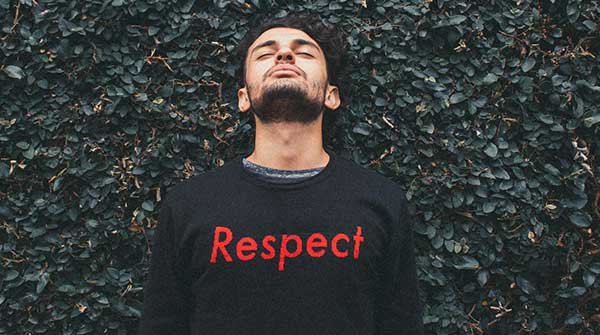Being understanding, being understood and being respectful of others essential if we are to solve our disagreements
 Stephen Covey, in his book The 7 Habits of Highly Effective People, emphasizes the importance of “Seeking first to understand, then to be understood.”
Stephen Covey, in his book The 7 Habits of Highly Effective People, emphasizes the importance of “Seeking first to understand, then to be understood.”
This principle is key to showing respect to others, overcoming misunderstandings, and finding the best solutions to problems. It’s also a great way to test ideas and agendas during interactions with others.
Most people appreciate being listened to and will express their ideas, respond to thoughtful questions, and ask for input in return.
However, some individuals become angry when asked to clarify their opinions and are not interested in hearing others’ thoughts. These people exist in all groups and even to a degree in each one of us. Recognizing this can help us navigate discussions that go awry.
 Photo by Tiago Felipe Ferreira |
| Related Stories |
| Respect was once a cornerstone of Canadian society
|
| Only respect for diversity will defeat extremism
|
| The critical social nuances of tolerance and respect
|
Many of us remember the Cold War, when questioning the ethics of one’s allies was seen as seditious. While many platforms exist for diverse opinions today, including YouTube, Rumble, and TikTok, we seem to have forgotten the value of respectful dialogue.
Following the principle of seeking first to understand, I have therefore made a concerted effort to understand the viewpoints of the self-proclaimed “unwoke” or “anti-woke”.
I agree with some of their concerns. There are keyboard warriors and angry TikTokers among the woke who don’t value other people’s opinions and don’t practice respectful dialogue. Though they may claim to stand for social justice, they are simply practicing meanness, and they are not listening. If that’s what being “woke” means, I don’t want to be labelled as such.
I also appreciate the criticisms of “woke” social media posts that endorse historical inaccuracies. Alternative facts do not serve us because they do not bring us closer to the truth or make the world better.
On the other hand, some aspects of “anti-woke” discourse are concerning, particularly the unwillingness to critically examine dominant historical narratives. Criticisms of colonialism, for example, are often met with responses like, “Why don’t you talk about the good things we did?” While it’s true that positive things happened, they don’t negate the atrocities that were committed.
This perspective reminds me of the views expressed by many Germans after the Second World War. They would say, “We also suffered,” or “Look at what the Russians did to us and how our cities were bombed.” Or “I had nothing to do with Auschwitz.” Or “Other countries were antisemitic too.” Or “We need to just forget the past and move on.”
It wasn’t until the post-war generation came of age in the late 1960s that young Germans began questioning their parents’ and grandparents’ actions and inactions. This introspection led to a healthier democracy and a country that is praised for its human rights, all while having one of the world’s strongest economies.
I also don’t understand the “anti-woke” criticism of kindness and inclusivity. How is acknowledging historical crimes or embracing members of the 2SLGBTQ+ community harmful to society? We all make mistakes, and it is difficult to find a society not guilty of crimes against humanity or even genocide. Only through courageous introspection and just action will we build a better world where “never again” becomes a reality.
Seeking to understand others is essential for respectful dialogue and problem-solving. While there are valid concerns on both sides of the “woke” debate, we must continue to critically examine our history, embrace inclusivity and kindness, and work towards a better future.
That is not a “woke” or “anti-woke” narrative. It is a simple human truth.
Gerry Chidiac specializes in languages, genocide studies and works with at-risk students. He is the recipient of an award from the Vancouver Holocaust Education Centre for excellence in teaching about the Holocaust.
For interview requests, click here.
The opinions expressed by our columnists and contributors are theirs alone and do not inherently or expressly reflect the views of our publication.
© Troy Media
Troy Media is an editorial content provider to media outlets and its own hosted community news outlets across Canada.

